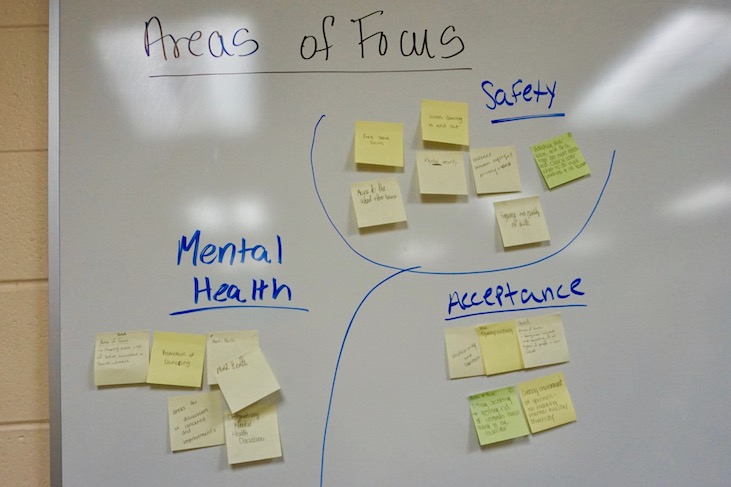
By Joy Mazur
The shooting at Marjory Stoneman Douglas High School in Parkland, Florida this past Valentine’s Day has prompted widespread controversy across the nation concerning gun reform and school safety. In the wake of protests and mourning, schools from the east to the west coast are increasing their safety measures. Having just instituted mental drills using the “Run, Hide, Fight” method, Batavia High School is one of them. The Spectator talked to the principal, Dr. JoAnne Smith, to learn more about safety in our school.
Joy: What can we expect from BHS in the future in terms of school safety?
Dr. JoAnne Smith: “I think we’re always working with our district to make adjustments to our safety plan. I think we’re always looking for advice from either national or local authorities to adjust our drills and procedures to match that best-researched practice, which changes all the time based on events. They learn from each event and they give us different kinds of advice.”
J: How are we related to other schools on this issue, and are we working with other schools?
S: “Even in the district, we were the pilot for that new kind of a drill, that kind of mental exercise. I know other schools in the district plan to do that in the fall. I meet with local principals at least once a month. We really look to those local authorities. We work with other school districts to get ideas, but in terms of best practice, we really look to those experts.”
J: Has there been any hesitance within our school or within the district with these drills?
S: “I wouldn’t say hesitance, I would say the drive to get it right. To craft those kinds of drills, and the messages and the communications take a lot longer than anyone would ever think. We have to make sure the whole Safety Committee is on board, and make sure that the Batavia Police Department is on board, and those things take a long time… so I don’t think there’s a hesitance, I think those things take a long time to make sure we’re doing a good job with them.”
J: Do you think the roles of teachers are changing, and how?
S: “I think yes; in the past, there was a specific way we did a lockdown– there wasn’t a whole lot of thought that had to go into it, it was just a reaction, right? And now we’re giving them the choice to take the best course of action depending on the information they have. That is asking a lot out of our staff for sure. We know that that’s stressful, that they need to keep kids safe. It will never be easy, but we’re hoping that adding these extra tools will put a routine in their head, where they know they have some choices.”
J: What responsibility do the students have in keeping the school safe?
S: “I think the best thing our kids can do is just telling us about things that aren’t quite right. The students have a much better sense sometimes of what’s going on. Reporting is so crucial to keeping all of us safe.”
J: There have been a lot of rumors in our school, and sometimes those can create dangerous situations. How can we, as a school environment, work on keeping these from escalating– and where’s the line between a rumor and a serious threat?
S: “I think one thing that was really great was after some incidents this spring, the district sent out an email on what is a rumor and what is a fact. When someone reports something, we do want to get some background information. It’s our job to figure out if it’s true or false, but we also want to educate the students and parents what a rumor looks like.”
J: How do you feel about the relationship between students, staff, and parents, and is there anything we can do to improve it?
S: “There’s always room for improvement in any area we deal with. We think transparency helps with that relationship and that trust, and we want people to trust us, we want to trust parents and students. I think keeping those open lines of communication is something we really attempt to do. We’re always trying to give as much information as we can, but we are dealing with adolescents, and sometimes there are privacy laws that prevent us from giving every piece of information for every situation. We are attempting to give more proactive information, versus just reactive. We want to be very honest and clear with people and let them know what to expect.”
J: Is there anything the school is doing to promote better mental health?
S: “We have individual counseling and will be starting group counseling in the fall. We’re one of the only school districts who spend tens of thousands of dollars, usually in grants, to bring people into the building. For example, we have a certified drug and alcohol counselor that comes into the building that is not part of the staff. We’re trying to use our own staff the best we can, but also working outside the box. We feel like we use our resources, but we’re always looking to improve.”